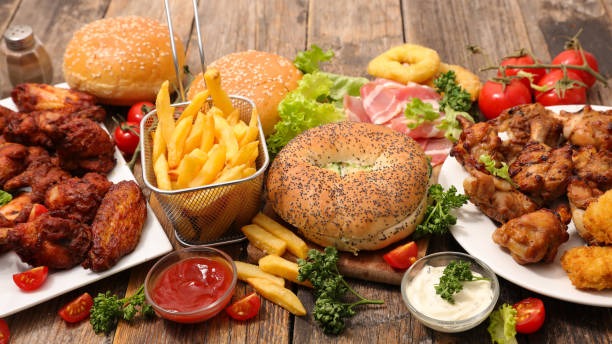Cancer, a complex group of diseases characterized by uncontrolled cell growth, is influenced by various factors, including genetics, lifestyle choices, and environmental exposures. While genetics play a significant role, lifestyle factors such as diet can also greatly impact cancer risk. Several common food habits have been identified as potential contributors to an increased risk of cancer. Understanding these dietary patterns and their associated risks is crucial for promoting cancer prevention and overall health.
High consumption of processed and red meat
Excessive intake of sugary foods and beverages
Diets high in sugar, particularly from sugary drinks, sweets, and processed snacks, have been associated with an increased risk of obesity, type 2 diabetes, and certain types of cancer. Consuming large amounts of sugar can lead to insulin resistance, chronic inflammation, and elevated insulin levels, all of which may promote cancer development and progression. Additionally, sugary foods contribute to weight gain and adiposity, which are established risk factors for several types of cancer, including breast, colorectal, and pancreatic cancer.
Inadequate intake of whole grains
Whole grains, such as brown rice, quinoa, oats, and whole wheat, are rich in fiber, vitamins, minerals, and phytochemicals that offer numerous health benefits, including cancer prevention. Diets low in whole grains and high in refined grains have been associated with an increased risk of certain cancers, particularly colorectal cancer. Whole grains help regulate blood sugar levels, promote digestive health, and provide important nutrients that support overall well-being and reduce cancer risk.
High consumption of processed and fast foods

High alcohol consumption
Low intake of fruits and vegetables
Overconsumption of salt and pickled foods
High salt intake, often associated with the consumption of pickled and preserved foods, has been linked to an increased risk of stomach cancer. Salt-preserved foods can damage the lining of the stomach and increase the production of stomach acid, potentially leading to inflammation and the formation of cancerous lesions. Additionally, salt may interact with certain compounds in foods to form N-nitroso compounds, which are known carcinogens.
Visit us – http://www.aarogyapath.in
